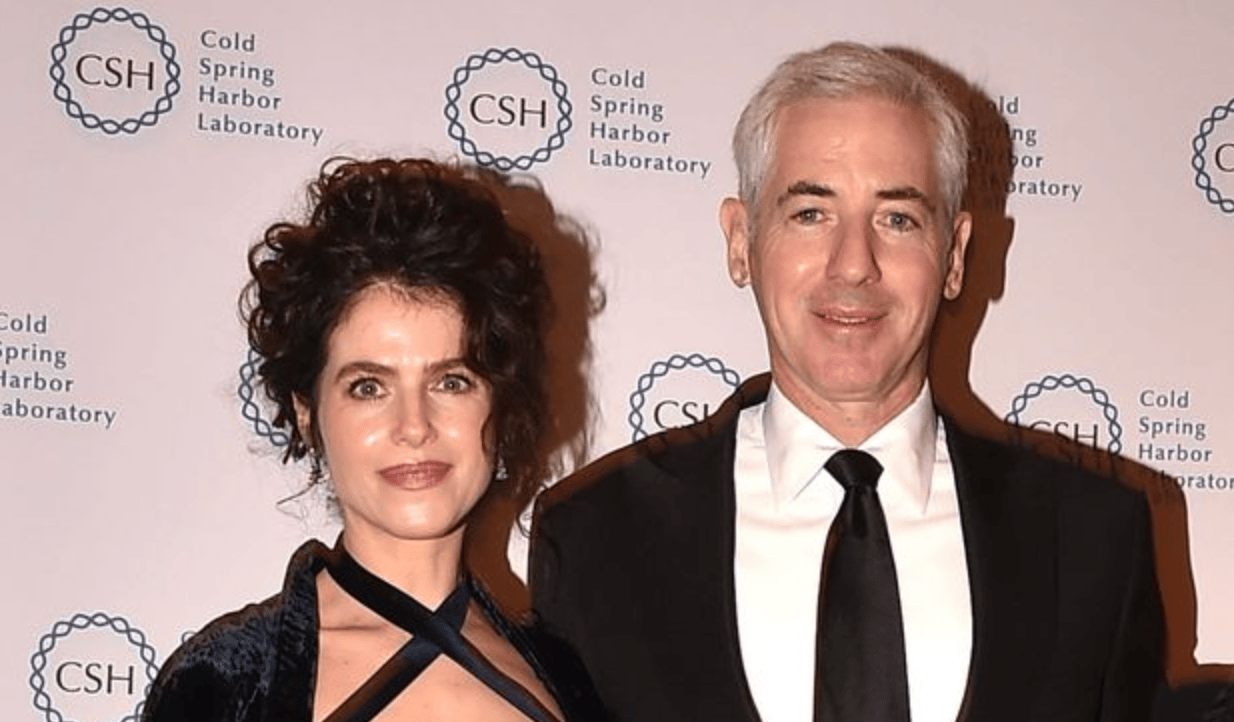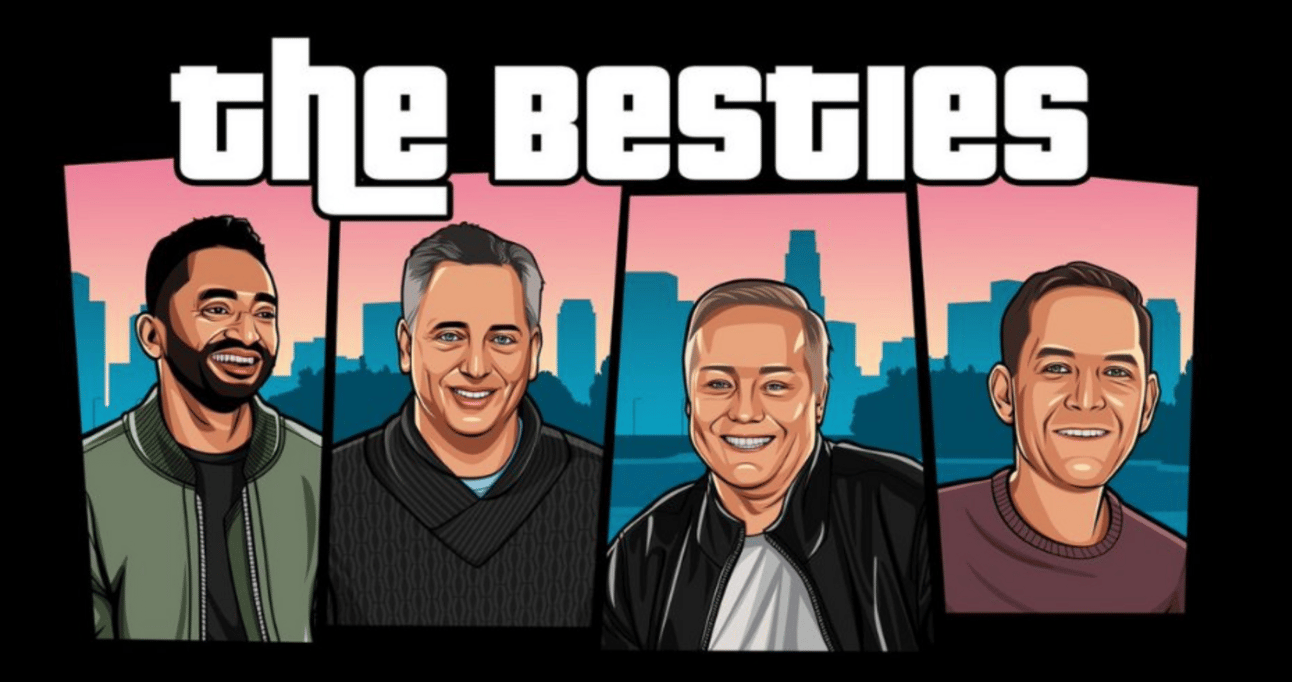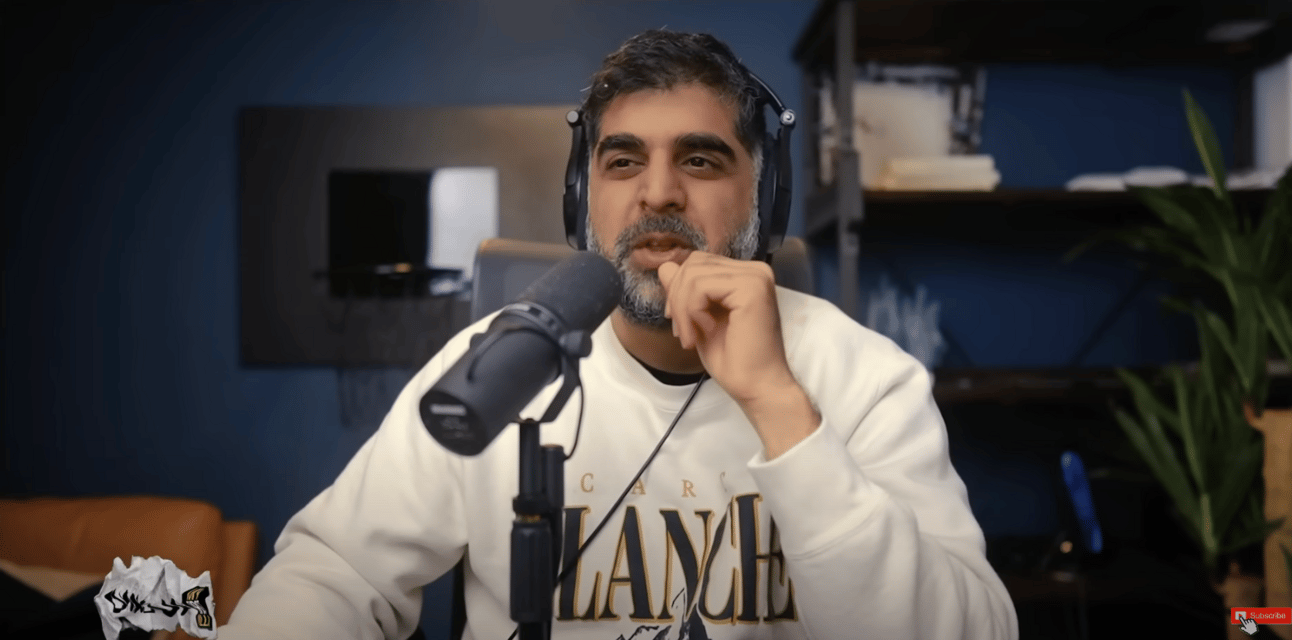- Tech Podcasts This Week
- Posts
- Bill Ackman on investing... and his wife
Bill Ackman on investing... and his wife
Optimising brain function - and why Google’s AI is such a disaster.
Hey friends,
Welcome back to Tech Podcasts This Week, where we did the work of listening to 26 hours of tech podcasts and picking out the best bits - ready for you as a 3 minutes read.
Today we have Bill Ackman in the main slot talking about Business Insider and the allegations against his wife. We also have tips on embracing slow productivity with Tim Ferris, optimising brain function with Huberman.
If you are not already subscribed to the newsletter, please subscribe here. And if you forward this to a friend, we will love you forever.
GS
\The Best of… Lex Friedman
Bill Ackman: Investing, Biggest Loss and Defending His Wife

Bill Ackman is an investor who has led some of the biggest and controversial financial trades in history. He is founder and CEO of Pershing Square Capital Management and has been the centre of controversy of late over Harvard & Israel as well as a fight with Business Insider over plagiarism allegations against his wife. “The only person who can cause you more harm than a thief with a dagger is a journalist with a pen,” he says. These are the key points from the podcast.
1. Psychology of Investing
Bill Ackman talked about the psychological resilience needed in investing, stating: "A key success factor is you want to have enough money in the bank that you’re going to survive regardless of what’s going on with volatility in markets." He highlights the importance of being financially secure and well-informed about one's investments to withstand market fluctuations, advising against borrowing money to invest. Ackman believes in the power of knowledge and emotional detachment from short-term market movements, "I’m remarkably immune to volatility and that’s a big advantage." His approach underscores investing in what you understand and taking a long-term view.
2. His wife Neri Oxman
Ackman expresses deep admiration for Neri Oxman, describing her as "the most beautiful person I’ve ever met," praising not just her physical beauty but her soul, intellect, and warmth. He reflects on meeting Oxman during a personal low, highlighting her positive influence and the strength of their connection. Ackman defends Oxman against plagiarism accusations, framing the situation as a misunderstanding and not reflective of her integrity or contributions to science and art. “We’re going to make sure there’s a real cost, reputationally and otherwise, to Business Insider and to Axel Springer,” he says.
3. Biggest Loss and Lowest Point
Ackman recounts the significant loss with Valiant Pharmaceuticals as a deviation from his core principles, leading to a $4 billion loss. This period was marked by both financial and personal challenges, including his divorce. He describes the experience as "pretty grim," detailing how it led to a comprehensive reassessment of his investment strategy and personal resilience. Ackman's strategy for recovery involved reasserting control over his company and refocusing on fundamental investment principles, supported by practices like meditation and exercise. He underscores the importance of progress and perseverance, "just make a little progress every day."
\The Best of… All In Pod
Google's AI Disaster

Here are the key bits from this week’s All In podcast with Chamath Palihapitiya, Jason Calacanis, David Sacks & David Friedberg. The podcast kicks off with a laid-back intro, poking fun at the energy levels of everyone. "This is an odd intro...could your intro be any more low energy and dragged out?" Then they discussed:
Nvidia Smashes Expectations Again
Nvidia's Unprecedented Growth: Nvidia's success story is highlighted as a testament to strategic positioning and technological innovation. "Nvidia...perfect place, perfect time...exploded."
Understanding Terminal Value: The discussion navigates the complexities of Nvidia's valuation, comparing its trajectory with historical tech giants and pondering its long-term impact. "The real question is who will step up to try to compete away those profits."
Bull vs. Bear Cases: The conversation oscillates between optimism for Nvidia's future and caution, drawing parallels with past tech cycles. "A bunch will fail...Some will survive and become the next big name chain."
Groq's Big Week
Deep Tech Success: The episode celebrates Groq's significant breakthrough, emphasizing the perseverance required in deep tech ventures. "An overnight success can take eight years."
Training vs. Inference: Insight into the differentiation between training and inference in AI, underscoring Groq's niche in efficiency and cost-effectiveness. "Inference is something very different which is all about speed and cost."
LPUs vs. GPUs: A technical dive into the evolution from GPUs to LPUs, illustrating Groq's innovative approach to chip design for AI applications. "Take the chip and make it much smaller and cheaper."
Google's AI Disaster
Is Google Too Woke?: The segment critically examines Google's AI model, Gemini, for its bias and ideological underpinnings, questioning Google's ability to adapt in an AI-driven search landscape. "Google's bureaucratic corporate culture...infected with ideology."
Search Disruption by AI: Reflects on the challenges Google faces as AI reshapes the landscape of search, pointing out the potential for bias to undermine trust in Google's AI outputs. "AI should serve as a tool for uncovering facts rather than shaping narratives."
War Corner with Sacks
Geopolitical Insights: Provides a brief but potent analysis of current geopolitical tensions, offering a glimpse into the complexities of modern warfare and its global implications. "The bigger your cash cow, the worse your culture can get without driving you out of business."
\The Best… Tim Ferris
How to Embrace Slow Productivity

In this episode of the Tim Ferris show, Tim talks to Cal Newport, a best selling author and professor of computer science at Georgetown University, who is taking about his new book is Slow Productivity: The Lost Art of Accomplishment Without Burnout. Here are the key points:
Rejecting Work is Not Sustainable: The guest criticizes the current cultural trend of outright rejecting work as a response to burnout, highlighting that this stance is not only unsustainable but also hypocritical. Many of those advocating for doing nothing are, in reality, working hard to promote their content on platforms like Substack and through books. This insight emphasizes the importance of finding a balance between work and rest, rather than completely dismissing the value of work. "The people who are telling you to do this are not doing nothing; they're striving really hard to make sure that their substacks and books about doing nothing are going to have a really big audience."
Obsess Over Quality: A significant point made is the need to obsess over the quality of one's work rather than merely focusing on doing less. This approach is crucial for fulfilling the human drive to create, building leverage to control one's life, and making a living. It suggests that true satisfaction and professional success come from a deep engagement with one's work, striving for excellence in whatever one does. "You can't just focus on the doing less part; you need to obsess over the quality part."
Techno-Selectionism: The guest introduces the concept of "techno-selectionism" as a philosophy for engaging with technology. It involves being willing to step back from certain technologies if they do not align with one's values or contribute positively to one's life. This idea challenges the prevailing narrative that new technology is inherently good and encourages a more thoughtful and selective approach to adopting technological tools. "Techno-selectionism says be willing to actually aggressively step backwards...this is really the way we should think about dealing with technologies in our life."
\The Best of… Huberman Labs
How to Optimize Cognitive Function & Brain Health

In this episode, my guest is Dr. Mark D'Esposito, M.D., a neurologist and professor of neuroscience and psychology at the University of California, Berkeley. They discuss the brain mechanisms underlying cognition and the forms of memory required for focus, productivity, planning and achieving goals, and learning. Here are the top takeaways:
Executive Function and Memory are Crucially Interlinked and Can Be Optimized: Dr. Mark Desposito emphasizes the close relationship between executive function and memory, highlighting their importance in daily life. He states, "Executive function is the way in which we are able to designate and carry out specific cognitive strategies and it is fundamental to every aspect of our daily lives." This underscores the idea that improving executive function and memory can significantly enhance one's ability to navigate various aspects of life effectively.
Dopamine Plays a Key Role in Cognitive Function, Especially Working Memory: Desposito explains the critical role of dopamine in supporting working memory and executive function, noting, "DOP mean seems to be a modulator to help this persistent activity stay persistent... during the time that you need to keep this information in mind." This insight sheds light on the potential of pharmacological interventions targeting dopamine to improve cognitive functions in both healthy individuals and those suffering from cognitive deficits due to injury or disease.
Physical Exercise and Lifestyle Factors are Integral to Maintaining Cognitive Health: The discussion highlights the importance of physical exercise and other lifestyle factors in supporting brain health and cognitive function. Desposito mentions, "Aerobic exercise [is] just as effective as cognitive therapy in improving executive function," indicating that a holistic approach involving exercise, proper nutrition, and sleep optimization is key to enhancing and preserving cognitive abilities.
\The Best of… Diary of a CEO
The Money Making Expert: The Formula For Turning $100 into $100k.

Daniel Priestley is an award-winning serial entrepreneur who has built and sold several successful businesses and written 5 books on starting and scaling businesses. Here are his step by step guide to making money…
Start with an Idea: Focus on sharpening your business idea in the market, not just in your mind. Validate your concept by engaging with potential customers rather than spending resources on infrastructure without testing market interest.
Fail Fast and Fail Cheap: Utilize strategies like waiting lists to test your idea's viability quickly and with minimal investment. This approach helps in understanding market demand without significant financial risk.
Ideas vs. Execution: Remember that the real value lies in execution, not just the idea itself. Many people might have similar ideas, but the success depends on how well you execute and bring the idea to market.
Build a Strong Sales Foundation: Being an exceptional salesperson is crucial. Business, at its core, involves selling your product or service effectively. Focus on developing your sales skills and strategies.
Leverage Relationships and Teamwork: Recognize that business is a team sport. Building a strong network and assembling a capable team are key components to scaling your business and increasing its value.
Invest in Personal Development and Relationships: If you have limited resources, invest in improving your skills and building relationships. These investments can pay off significantly by opening doors to new opportunities and partnerships.
Adopt a Visionary Approach: Keep a long-term perspective and stay open to new possibilities. Being visionary and adaptable to change can set you apart in a rapidly evolving market.
Create Value: Focus on creating and offering value through your products or services. The aim is to solve a problem or fulfill a need for your target audience effectively.
Utilize Digital Tools and AI: Embrace technology and digital tools to optimize your business processes and reach. Artificial Intelligence (AI) and other digital platforms can significantly enhance your productivity and efficiency.
Stay Persistent and Learn from Failures: Persistence and resilience are key. Expect to face setbacks and failures along the way, but view them as learning opportunities to improve and refine your approach.
\The Best of… My First Million
Three Genius Business Ideas

This in this episode of My First Million, Shaan Puri and Sam Parrtalk to Syed Balkhi about the business ideas he would go after if he wasn’t already running WPBeginner. Here they are:
Productized Services in Offshore Markets: Balk sees a massive opportunity in productizing services with offshore resources. He talks about services like custom WordPress development or bookkeeping services - leveraging talent from countries with lower labor costs.
Acquiring Businesses for Customer Acquisition: Instead of spending heavily on pay-per-click (PPC) advertising, Balk suggests acquiring businesses as a strategy for customer acquisition. This approach can be more cost-effective and sustainable, especially for subscription-based businesses or those with high customer lifetime value.
Investing in Ecosystems with High Stickiness: Balk highlights the potential in investing in ecosystems around sticky platforms like QuickBooks or Shopify. He suggests acquiring apps or services that complement these platforms can be a smart move.